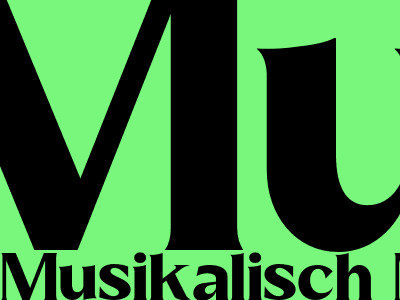Musikalisch Mehr: Unlocking the Transformative Power of Music
The Power of Music in Shaping Human Experience
Music has been an integral part of human societies for millennia, leaving an enduring mark on our culture, emotions, and overall well-being. From ancient lullabies to modern-day pop anthems, music has the ability to transport us to different realms, evoke powerful emotions, and create a sense of unity. It has the power to uplift our spirits, calm our minds, and even promote healing.
Research has shown that music can positively impact our physical health as well. Studies have linked regular music listening to reduced stress, improved sleep, and even a strengthened immune system. It can also serve as a powerful tool for coping with chronic pain, mental health challenges, and other health conditions.
Music Education: A Gateway to Endless Possibilities
Music education is not just about learning to play an instrument. It's about developing critical thinking skills, fostering creativity, and nurturing a lifelong love for the arts. Music lessons have been shown to improve cognitive function, enhance problem-solving abilities, and boost academic performance. They also provide a valuable platform for social and emotional development, helping children learn how to work together, express themselves, and appreciate diverse cultures.
Research has consistently demonstrated the benefits of early childhood music education. Exposure to music in the early years has been linked to improved language development, spatial reasoning skills, and overall cognitive function. It can also lay the foundation for future musical endeavors or simply instill a lifelong appreciation for the beauty of music.
Music and Culture: A Tapestry of Diversity
Music is a powerful expression of cultural identity. Different regions, ethnicities, and historical eras have their own unique musical traditions, each reflecting the values, beliefs, and experiences of a particular people. Music serves as a bridge between cultures, allowing us to learn about and appreciate the rich diversity of human expression.
Traditional music forms, passed down through generations, offer a glimpse into the history and cultural heritage of a particular community. They tell stories, preserve traditions, and celebrate the unique identity of a people. In many cultures, music is inextricably linked to religious rituals, festivals, and other important social events.
Music Industry: A Dynamic and Ever-Evolving Landscape
The music industry is a vast and complex ecosystem that encompasses a wide range of professionals, from musicians and producers to record labels and streaming platforms. Technological advancements have brought significant changes to the industry, particularly in the way music is produced, distributed, and consumed.
The rise of digital streaming services and social media has led to increased accessibility and discoverability of music. However, it has also raised questions about artist compensation and the challenges facing musicians in the digital age. The industry is constantly adapting to meet the changing needs of consumers, with new business models and technologies emerging all the time.
Conclusion: The Enduring Legacy of Music
Music is a universal language that transcends cultural and generational boundaries. It has the power to inspire, connect, and heal. From its ancient origins to its contemporary manifestations, music continues to play a vital role in human experience. Whether it's enjoyed as a form of entertainment, education, or therapy, music enriches our lives in countless ways. As we embrace the transformative power of music, we unlock a world of possibilities, fostering human connection, creativity, and well-being.
By supporting musicians, promoting music education, and celebrating cultural diversity, we can ensure that the legacy of music continues to thrive for generations to come.

Komentar